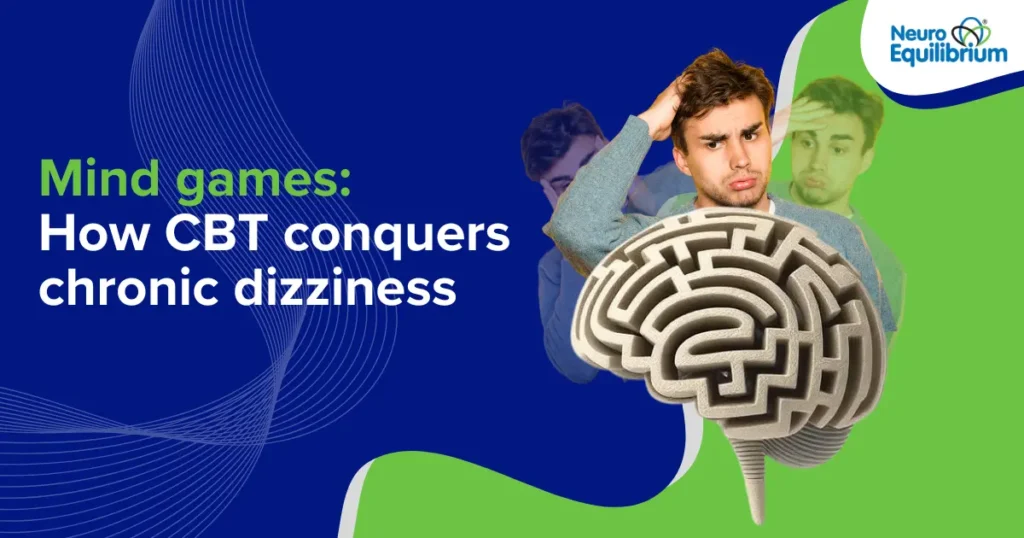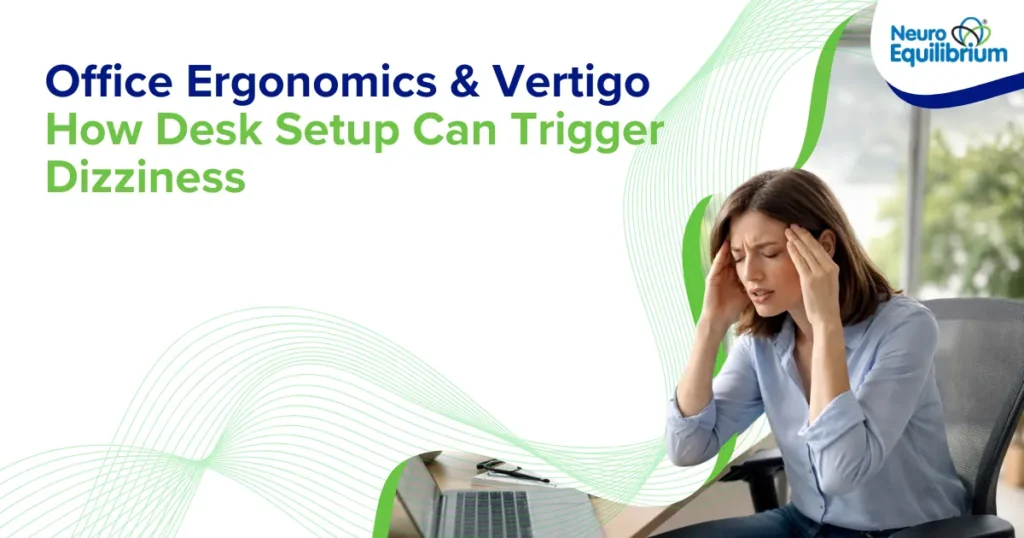A version of this article first appeared on Times of India on Jul 16, 2024 and is reproduced here.
Regaining control: The power of Cognitive Behavioural Therapy(CBT) in managing chronic dizziness
Recurrent or persistent instability and dizziness are worrisome conditions that can lead to loss of confidence, fear of falls, and social isolation. Simple activities like crossing the road or going up on an escalator involving body movement and looking at moving things can aggravate the unsteadiness.
The balance system within the inner ear and its connections to the brain and different body parts are responsible for stabilizing the body. Many inner ear disorders can lead to vertigo, such as BPPV, where crystals are dislodged, or viral infections of the balance nerve (vestibular neuritis). Some people continue to feel unsteady even after the primary cause of dizziness has been controlled.
People suffering from chronic conditions often develop automatic negative thoughts like “I will never get better,” “There is no cure,” or” I can’t do anything.” Longstanding dizziness can lead to the development of dysfunctional responses like fear or hypervigilance to the thought of triggers, which can increase their dizziness. Cognitive Behavioural Therapy(CBT) by trained psychologists is a valuable adjuvant to the management protocol for recurrent or persistent dizziness.
How yoga elevates overall well-being
In CBT, the therapists empower the patient to understand the connection between “what your thoughts are,” “how it makes you feel,” and “how it affects your behavior” regarding balance issues. The goal is to replace negative thought patterns by creating alternative belief formulations that allow them to think about their symptoms more positively. Over weeks of CBT sessions, the patient gains the power to replace disabling thoughts and worst-case thinking patterns with more functional ones, allowing them to learn new ways to do activities that were being avoided.
CBT works on the foundation of cognitive restructuring, nudging the patient to challenge negative thinking patterns, avoid anticipating negative consequences, and change their dysfunctional responses to more confident balance control.
Persistent postural perceptual dizziness (PPPD) is a common chronic balance disorder characterized by persistent vestibular symptoms like postural instability or a rocking sensation, which are aggravated by upright posture, body movement, or moving visual fields like crowded areas. This condition has shown remarkable functional recovery when the treatment plan includes CBT.

How does cognitive behavioral therapy help with chronic vertigo?
1. Understanding triggers: The first step to dealing with vertigo is identifying what triggers it. This could be specific movements, environments, or even stressful situations. By pinpointing these triggers, you can learn to manage them better.
2. Creating alternative beliefs: CBT teaches you to replace negative thoughts with more positive and realistic ones. For instance, instead of thinking, “I’ll never get better,” you can think, “I’m taking steps toward managing my vertigo.” This shift in thinking can reduce anxiety and fear associated with vertigo. Patients can also learn coping strategies like distraction techniques or positive self-talk through CBT.
3. Relaxation techniques: CBT teaches progressive muscle relaxation and deep breathing techniques to activate the parasympathetic nervous system. These techniques can help calm your body’s response to vertigo symptoms, making them less intense and easier to handle.
4. Exposure therapy: This involves gradually exposing yourself to situations that trigger your vertigo but in a controlled and safe way. Over time, exposure therapy can help desensitize you to these triggers, reducing the frequency and severity of vertigo episodes.
5. Building confidence: Vertigo can shake your confidence and make you feel vulnerable. You can regain confidence through CBT by learning coping skills and strategies to manage your symptoms effectively.
CBT can be conducted as physical sessions or online through video calls. It is important to remember that CBT sessions, with their proven effectiveness, require at least 4-6 weeks to bring about significant positive changes in your life.
If you suffer from chronic dizziness, remember you are not alone. CBT, with a trained psychologist, can be a powerful tool on your journey to finding balance and reclaiming control over your life.
FAQs
What is CBT?
The therapeutic approach of Cognitive Behavioural Therapy (CBT) enables people to recognize their harmful thinking habits and swap them for more constructive and realistic thoughts to control symptoms of chronic dizziness effectively.
Book a consultation at your nearest NeuroEquilibrium Clinic today.
How effective is CBT in managing chronic dizziness?
The treatment method of CBT delivers outstanding results for managing persistent dizziness among patients who experience Persistent Postural Perceptual Dizziness (PPPD). The therapy helps patients replace their negative thoughts and reduces their fear while developing better coping mechanisms which result in improved quality of life for 4-6 weeks.
Book a consultation at your nearest NeuroEquilibrium Clinic today.
Can CBT completely cure chronic dizziness?
CBT functions as an extremely powerful management approach for chronic dizziness although it does not eliminate the condition completely. Through CBT patients can manage their symptoms better because the therapy teaches them new ways to respond to triggers as well as diminishes their dizziness-related anxiety and negative thoughts.
Book a consultation at your nearest NeuroEquilibrium Clinic today.
What kind of techniques are used in CBT for chronic dizziness?
The treatment of chronic dizziness using CBT includes four main elements which are cognitive restructuring and relaxation techniques (deep breathing and progressive muscle relaxation) and exposure therapy alongside positive coping mechanism development.
Book a consultation at your nearest NeuroEquilibrium Clinic today.
How long does it take for CBT to show results for chronic dizziness?
CBT usually shows noticeable improvements within 4-6 weeks of consistent sessions with a trained psychologist.
Book a consultation at your nearest NeuroEquilibrium Clinic today.
















